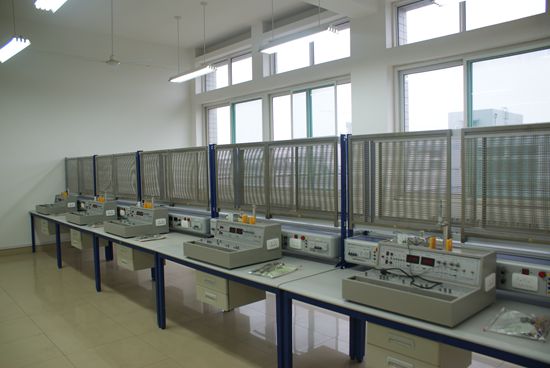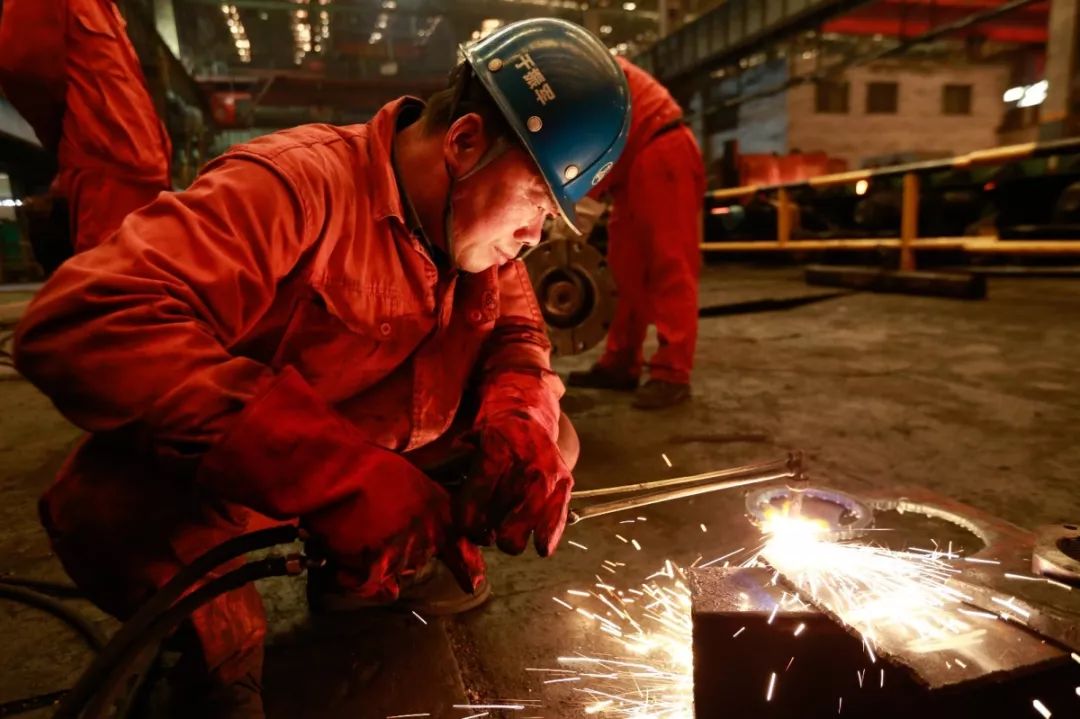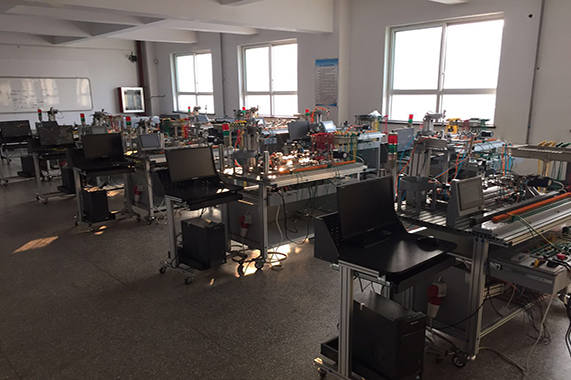总结的这些翻译方法真是太经典了,同学们慢慢体会,翻译是慢功夫,慢慢提高。
一、常用方法

1
增译法
在翻译时增添一些词、短句或句子,以便更准确地表达出原文所 的意义。在汉译英时需要增补物主代词,而在英译汉时又需要根据情况适当地删减。在汉译英时常常需要增补连词。另外,在翻译时还要注意增补一些原文中暗含而没有明言的词语和一些概括性、注释性的词语,以确保译文意思的完整。如:
(1) What about calling him right away?
马上给他打个电话,你觉得如何? (增译主语和谓语)
(2) If only I could see the realization ofthe four modernizations.
要是我能看到四个现代化实现该有多好啊!(增译主句)
(3) Indeed, the reverse is true
实际情况恰好相反。(增译名词)
(4)就是法西斯国家本国的人民也被剥夺了人权。
Even the people in the fascist countrieswere stripped of their human rights.(增译物主代词)
(5)只许州官放火,不许百姓点灯。
While themagistrates were free to burn down house, the common people were forbidden tolight lamps. (增译连词)
(6)这是我们两国人民的又一个共同点。
This is yetanother common point between the people of our two countries.(增译介词)
(7)在人权领域,中国反对以大欺小、以强凌弱。
In the field ofhuman rights,Chinaopposes the practice of the big oppressing the small and the strong bullyingthe weak.(增译暗含词语)
(8)三个臭皮匠,合成一个诸葛亮。
Three cobblerswith their wits combined equal Zhuge Liang the mastermind.(增译注释性词语)
2
省译法
删去不符合目标语思维习惯、语言习惯和表达方式的词。如:
(1) You will bestaying in this hotel during your visit in Beijing.
你在北京访问期间就住在这家饭店里。(省译物主代词)
(2) I hope youwill enjoy your stay here.
希望您在这儿过得愉快。(省译物主代词)
(3)中国政府历来重视环境保护工作。
The Chinese government has always attachedgreat importance to environmental protection. (省译名词)
3
转换法
就是在词性方面,把名词转换为代词、形容词、动词;把动词转换成名词、形容词、副词、介词;把形容词转换成副词和短语。在句子成分方面,把主语变成状语、定语、宾语、表语;把谓语变成主语、定语、表语;把定语变成状语、主语;把宾语变成主语。在句型方面,把并列句变成复合句,把复合句变成并列句,把状语从句变成定语从句。在语态方面,可以把主动语态变为被动语态。如:
(1)我们学院受教委和市政府的双重领导。
Our institute is co-administrated by theStates Education Commission and the municipal government. (名词转动词)
(2) Too much exposure to TV programs will dogreat harm to the eyesight of children.
孩子们看电视过多会大大地损坏视力。(名词转动词)
(3)由于我们实行了改革开放政策,我国的综合国力有了明显的增强。
Thanks to the introduction of our reformand opening policy, our comprehensive national strength has greatly improved. (动词转名词)
(4) I'm all for you opinion.
我完全赞成你的意见。(介词转动词)
(5) The reform and opening policy issupported by the whole Chinese people.
改革开放政策受到了全中国人民的拥护。(动词转名词)
(6) In his article the author is criticalof man's negligence toward his environment.
作者在文章中,对人类疏忽自身环境作了批评。(形容词转名词)
(7) In some of the European countries, thepeople are given the biggest social benefits such as medical insurance.
在有些欧洲国家里,人民享受最广泛的社会福利,如医疗保险等。(被动语态转主动语态)
(8)时间不早了,我们回去吧!
We don't have much time left. Let's goback. (句型转换)
(9)学生们都应该德、智、体全面发展。
All the students should develop morally,intellectually and physically. (名词转副词)
4
拆句法和合并法
拆句法是把一个长而复杂的句子拆译成若干个较短、较简单的句子,通常用于英译汉;合并法是把若干个短句合并成一个长句,一般用于汉译英。如:
(1) Increased cooperation withChinais in the interests of theUnited States.
同中国加强合作,符合美国的利益。 (在主谓连接处拆译)
(2) I wish to thank you for theincomparable hospitality for which the Chinese people are justly famousthroughout the world.
我要感谢你们无与伦比的盛情款待。中国人民正是以这种热情好客而闻明世界的。(在定语从句前拆译)
(3) This is particularly true of thecountries of the commonwealth, who seeBritain's membership of theCommunity a guarantee that the policies of the community will take theirinterests into account
英联邦各国尤其如此,它们认为英国加入欧共体,将能保证欧共体的政策照顾到它们的利益。(在定语从句前拆译)
(4)中国是个大国,百分之八十的人口从事农业,但耕地只占土地面积的十分之一,其余为山脉、森林、城镇和其他用地。
China is a large country with four-fifths of thepopulation engaged in agriculture, but only one tenth of the land is farmland,the rest being mountains, forests and places for urban and other uses.(合译)
5
5.正译法和反译法
正译,把句子按照与汉语相同的语序或表达方式译成英语。反译,把句子按照与汉语相反的语序或表达方式译成英语。如:
(1)在美国,人人都能买到枪。
In theUnited States, everyone can buy agun. (正译)
In theUnited States, guns are availableto everyone. (反译)
二、被动语态译法
(1)英语原文中的主语在译文中仍做主语。在采用此方法时,我们往往在译文中使用了“加以”, “经过”, “用……来”等词来体现原文中的被动含义。例如:
例1. Otherquestions will be discussed briefly.
其它问题将简单地加以讨论。
(2)将英语原文中的主语翻译为宾语,同时增补泛指性的词语(人们,大家等)作主语。例如:
例1. Itcould be argued that the radio performs this service as well, but on televisioneverything is much more living, much more real.
可能有人会指出,无线电广播同样也能做到这一点,但还是电视屏幕上的节目要生动、真实得多。
另外,下列的结构也可以通过这一手段翻译:
It is assertedthat …有人主张……
It is believedthat …有人认为……
It is generallyconsidered that …大家(一般人)认为
It is well knownthat …大家知道(众所周知)……
It will be said …有人会说……
It was told that …有人曾经说……
(3)将英语原文中的by, in, for等做状语的介词短语翻译成译文的主语,在此情况下,英语原文中的主语一般被翻译成宾语。例如:
例1. A rightkind of fuel is needed for an atomic reactor.
原子反应堆需要一种合适的燃料。
(4)翻译成汉语的无主句。例如:
例1. Greatefforts should be made to inform young people especially the dreadfulconsequences of taking up the habit.
应该尽最大努力告? nbsp|年轻人吸烟的危害,特别是吸上烟瘾后的可怕后果。(82年考题)
另外,下列结构也可以通过这一手段翻译:
It is hoped that …希望……
It is reportedthat …据报道……
It is said that …据说……
It is supposedthat …据推测……
It may be saidwithout fear of exaggeration that …可以毫不夸张地说……
It must beadmitted that …必须承认……
It must be pointedout that …必须指出……
It will be seenfrom this that …由此可见……
(5)翻译成带表语的主动句。例如:
例1. Thedecision to attack was not taken lightly.
进攻的决定不是轻易作出的。
2.译成汉语的被动语态。英语中的许多被动句可以翻译成汉语的被动句。常用“被”, “给”, “遭”, “挨”, “为……所”, “使”, “由…”, “受到”等表示。例如:
例1. Earlyfires on the earth were certainly caused by nature, not by Man.
地球上早期的火肯定是由大自然而不是人类引燃的。
三、形容词译法
(一)、一些原义并无否定意思的形容词和别的词搭配,有时可译成否定句。
1. Thesegoods are in short supply.
这些货物供应不足。
(二)、为了使译文自然流畅,读起来顺口,在一些形容词前可根据上下文内容加上副词“很”、“最”等字。
1. Itwas as pleasant a day as I have ever spent.

这是我度过最愉快的一天。
(三)、有时可将英语的“形容词+名词短语”译成汉语的主谓结构。
1. Shespoke in a high voice.
她讲话声音很尖。
(四)、如果一个名词前有几个形容词修饰,英译时应根据汉语习惯决定其顺序。
1. alarge brick conference hall
一个用砖砌的大会议厅
(五)、英语中一些表示知觉、情感、欲望等心理状态的形容词,同连系动词构成复合谓语时,翻译时可将形容词译成动词。
1. Youare ignorant of the duties you undertake in marrying.
你完全不懂你在婚姻方面承担的责任。
(六)、由于语言习惯不同,英语里的形容词有时译成汉语副词。
1. Iam going to be good and sweet and kind to every body.
我要对每一个人都亲切、温顺、和善。
四、举例before和good具体译法
(一)连词before的含义是“在……以前”(previousto the time when)。在句法上,它引导状语从句。可见它的词义颇为单纯,功能比较专一。然而,由于汉英表达习惯的不同,在将before汉译时,其译法却多种多样。常见的有以下几种:
1,直译成“(在)……(以或之)前”。这时主句与before从句中的两个动作按时间先后依次发生。
Before I enter on the subject I have something to say.
在讨论这一问题之前,我有些话要说。
2,译成“(后)……才”。副词“才”在汉语中表示某事发生得晚或慢。如果在含有before从句的复合句中,强调从句动作发生得晚或慢时,就可以应用这种译法。这里又有两种情况,一种是主句主语为名词或代词,另一种是主语与非人称it。
The train had left before he got to the station.火车开了他才到车站。
3,连词before与barely, scarcely, hardly连用时还可译成“刚……就”。在汉语中,“就”强调事情发生得早或快。如果原文突出主句与从句的动作一前一后紧接着或几乎同时发生,即可用此译法。
We had barely sat down before we heard bicyclesoutside.
我们刚坐下就听到外边有自行车的声音。
4,如果原文主句中谓语动词是否定形式则可译成“就”、“便”、或“快”。这又分主句主语为名(代)词和it两种情况。
I had not waited long before she came.
我没等多久她就来了。
5,假使原文目的在于渲染从句动作发生之前,主句动作业已发生,可译成“未……就”或“还没有(来得及)……就”。
The day began to break before we got to the hilltop.
我们还没有到达山顶天就开始亮了。
Before I could say a single word, he ran away.
我连一句话也没来得及说他就跑了。
另外,像before he knew it一类习惯说法,则可译成“不……(就)”。
The boy fell down from the ladder bvefore he knew it.
6,译为“趁(着)”,或用反说,译成“不然会”、“要不就”、“没”、“不”等。
Study hard before it is too late.
趁早努力学习。
7,某些习语中的连词before可译成“先……然后”、“先……再”或“而后”等。
One must sow before one can reap.
先有播种后有收获。
Look before you leap.
三思而后行。
有些习语中的before也可译成“未……先”。
Don\'t count your chickens before they are hatched.
鸡蛋未孵,勿先数雏。
此外,连词before还作“与其……(宁愿)”(rather than)讲,通常可以为“宁可……也不(肯)”、“宁愿……决不”等。例如:
We will die before we give in.我们宁死不屈。
(二) Good一词,在英语中该算是最熟悉、最常用的了。它的搭配能力很强,而且也常见于科技文章中。一看到good,我们便自然而然得会想到“好的”这一词义。然而,在一些场合, good的译法却是颇费踌躇的。
1,可译为“好的”,但概念模糊:如good fish (好鱼),是指品种,大小还是新鲜程度呢?
2,勉强可译为“好的”,但不搭配:如Good fire若译为“很好的炉火”是可以理解的,但不如译为“旺盛的炉火”。
3,译成“好的”反而错了:如good hard work不是指“一项好的但却艰巨的工作”,而是指“一项十分艰巨的工作”。
为了方便,在此不再引用其英语的释义而用其对应的汉语译义,每一词义只举一例。
(1)、美好的;良好的;令人满意的
a good knife一把好刀
a good conductor良导体
汉译时引申:
1,a good soil肥沃的土壤
2,good oil提纯了的油
3,a good money真的货币
4,a good river畅通的河道
5,good English规范的英语
6,Good switches move quickly.优质开关动作灵活。(good引申为“优质的”)
7,That engine sounds good.那台发动机听起来很正常。(good引申译为“正常”)
8,the rocket travels better through vacuumthan it des through the air.
火箭穿过真空比穿过空气容易。(good引申译为“容易”)
9,A good example of a case where electricityis changed to power is the electric streetcar.电变为动力的典型例子是电车。(good example引申译为“典型的例子”)
10,In the absence of an outdoor aerial thistelescopic aerial will give a good picture if the transmitter signal issufficiently strong.在无室外天线时,若发射机的信号很强,这种拉杆天线可产生清晰的图象(good picture引申译为“清晰的图象”)
11,Laser possesses a series of remarkableproperties, which make it a better light source in a number of cases.激光有许多显著的特性,这些特性使它在许多情况下成为一种更理想的光源。(good引申译为“理想的”)
(2)、有益的
Milk is good foodfor children.牛奶对小孩是有益的。汉译时引申:
1,good gradient平缓的坡度
2,It is no good heating the material to sucha temperature.把材料加热到这样的温度是不恰当的。(good引申为“恰当的”)
(3)、能胜任的;有能力的;能干的
汉译时引申:
1,a good chess player高明的棋手
2,A good human translator can do perhaps 2000to 3000 words a day.一个熟练的翻译人员一天也许能翻译两千到三千个词。(good引申译为“熟练的”)
(4)、彻底的;完全的
The workers gavethe machine a good checking.工人们对机器进行了彻底的检查。汉译时引申:
1,have a good drink喝个痛快
2,It has been thought of making good use ofthe sun\"s energy to serve the well-being of the people.我们早就设想过充分利用太阳能来为自己造福。(good引申译为“充分”)
3,This set consumes so little power that agood 12 volt car battery can still start your car after you have been watchingTV for 10 hours.本机耗电极少,因而具有12伏足电的汽车蓄电池在你看电视十小时后仍能用于开车。(good引申为“充足的”)
4,Rivers provide good sources of hydropower.河流具有丰富的水力资源。 (good引申译为“丰富的”)
5,The CE circuit is widely favored since itcan be designed for good voltage and current gains. CE电路得到广泛的使用,因为它能获得高电压增益和高电流增益。(good... gains引申译为“高……增益”)
(5)、可靠的;安全的;确实的
a car with goodbrakes刹车可靠的汽车
a good investment安全的投资汉译时引申:
good debts确可偿还的债务
转载请注明:中州职业技术信息网 » 机电一体化 » 机电一体化专业英语翻译(机电一体化专业英语翻译)
版权声明
本文仅代表作者观点,不代表B5编程立场。
本文系作者授权发表,未经许可,不得转载。
























发表评论